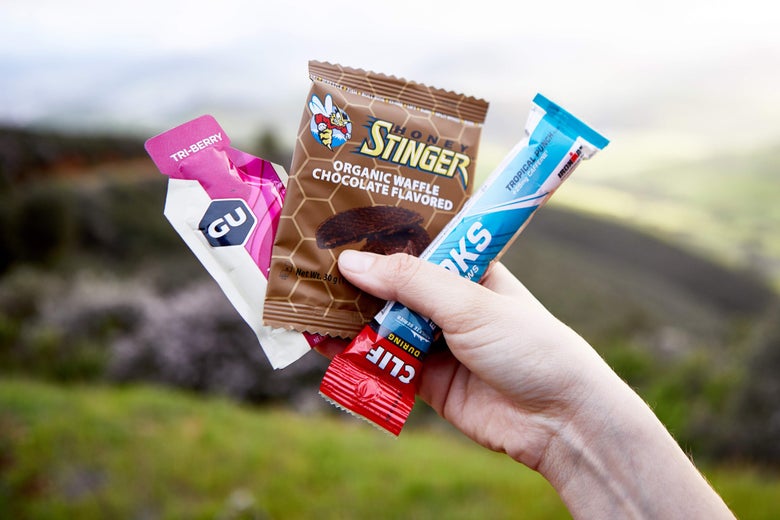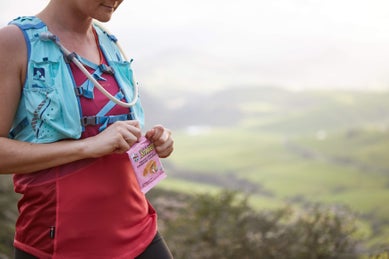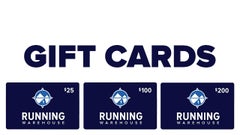How to Fuel for a Marathon
What to Eat Before, During, and After Your Next 26.2
Updated: January 26, 2024

If you're planning to run a marathon, you've probably put a great deal of work into getting ready for the big event. Between increasing your mileage, planning race-day logistics, and making sure you're equipped with the right footwear, training for a marathon is a major commitment. With all of that long-term preparation, it can be easy to overlook the smaller, yet equally important things like nutrition. How and what you eat before and during (and even after) your race can play a huge role in your success in the event.
During long races, our bodies rely on both stored energy as well as what we consume during a race for fuel. Generally, we do not have enough readily available fuel stored in our bodies for a full marathon, so providing additional energy during a race is necessary for optimal performance.
When planning your nutrition leading up to the big event, the most important thing to keep in mind is that significant dietary changes should always be avoided immediately before a race. This is not the time to experiment with different foods! Use these guidelines as a way to refine your current diet and ensure that you are as prepared as possible.
The Week Before the Marathon
The week before a marathon is a critical time to focus on eating a healthy and regular diet. This is essential for your immune system as well as your energy levels. Energy deficits can begin here, so make sure that you start fueling at least a week before your race.
Also read: What to Eat Before a Race
|
The Day Before the Marathon
On the day before your event, make sure your digestive system is ready to take on the race ahead. Now is the time to stick to easily digestible foods and stay away from anything that might irritate your stomach. This is also when you should focus on hydrating your body in anticipation of the race.
|
The Day of the Race
Today is the day! Your nerves may want to take priority over your stomach, but this is not the time to miss a meal. Make sure to eat a healthy, easily digestible breakfast and continue to fuel your body right up to the race.
Specific fueling and hydration guidelines will vary, as these are based on individual sweat rate, body weight, and level of fitness. Do not try anything on race day that you have not practiced in training.
|
During the Race
Getting enough carbohydrates during your race will not only help you go the distance physically, but it will also give your brain the fuel it needs to think clearly and keep you on a positive track during the race.
|
After the Race
What you eat after a marathon can be just as important as what you eat before. Ensuring proper nutrition for recovery will help you perform even better during your next workout or race.
|





